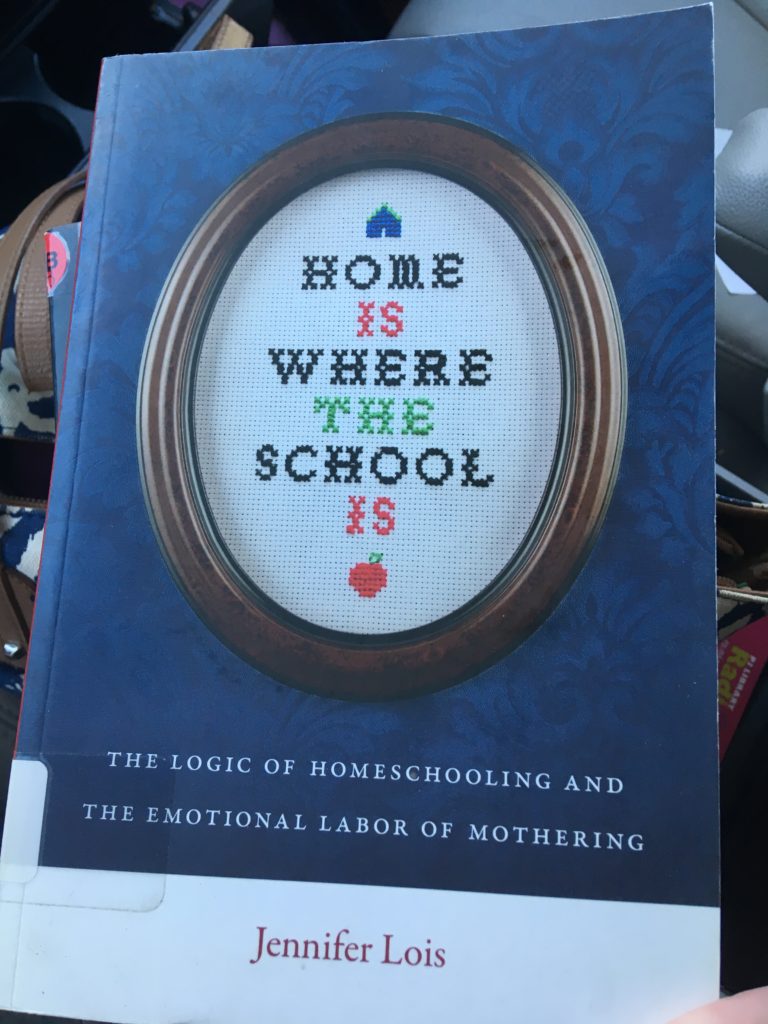I’ve been learning a lot about emotional labor over the last couple of years, so when someone (I wish I could remember where!) mentioned a book with both homeschooling and emotional labor right in the title, you know I jumped all over that. My library system even had a copy! What luck!
And that’s how I came to read Home Is Where the School Is: The Logic of Homeschooling and the Emotional Laboring of Mothering by Jennifer Lois.

The TL;DR version: interesting, provocative, but fundamentally an academic work. Not the pop psychology book I expected. But worth a read if the topic interests you.
It was a bit hard to read at times. It was just so…academic. The title and cover had me expecting a more layman-focused book, and maybe this was intended for laymen, but it was a slog at times, no matter how interesting the underlying concepts were. You have to cross your Ts and dot your Is, and that means detailed discussions of study methodology.
I also never really figured out what the “the logic of homeschooling” part of the title meant, and that bothered me. Referring to the reasons why people, mothers really, choose to homeschool? Because that’s the primary question. So I guess that’s what it means?
That was perhaps the most should-have-been-obvious-but-wasn’t idea for me: classifying mothers based on the reasons they decided to homeschool and seeing whether their reasons impacted their homeschooling experience and their satisfaction with it. Specifically, she was able to catalog the mothers as first-choice and last-resort homeschoolers (I believe the exact phrase was different, but I had to give the book back to the library before I wrote this!). It makes me rethink myself. Am I considering homeschooling as my first educational choice or is this just because this is the best option I have? Would I choose to homeschool even if I loved the dayschool system and specifically the day schools available to me, and money were no object?
I can’t answer that question. Both I guess? I’m not sure many parents committed to a religious-school education could really answer that because of the intervening issues of finances and religious education. How many of us can really say that money is no object and that we adore the religious schools available to us? But especially the money aspect. The preschool programs available to me, just a half-day program, cost over $10k per year per child. No matter what a good job I think they’re doing, and I do believe they are, how would I afford that PLUS another several thousand for childcare during the rest of business hours? Because I would not be staying at home any more if I had that bill to pay. And certainly not for 2 kids (or 4, which seems to be about the average family size in the Modern Orthodox community).
The choices just aren’t so simple when your alternative isn’t the “free” local public school (admitting that public school is not nearly as free as portrayed).
But the question and the framework are useful, and they have helped me spot issues I might face going forward (and face a little now). It gave me a lot to think about, and was a very interesting discussion even if some parts were a bit slow. If you’re a real nerd about homeschooling, I recommend this book. If you aren’t, I don’t think you’ll miss anything by not reading it.